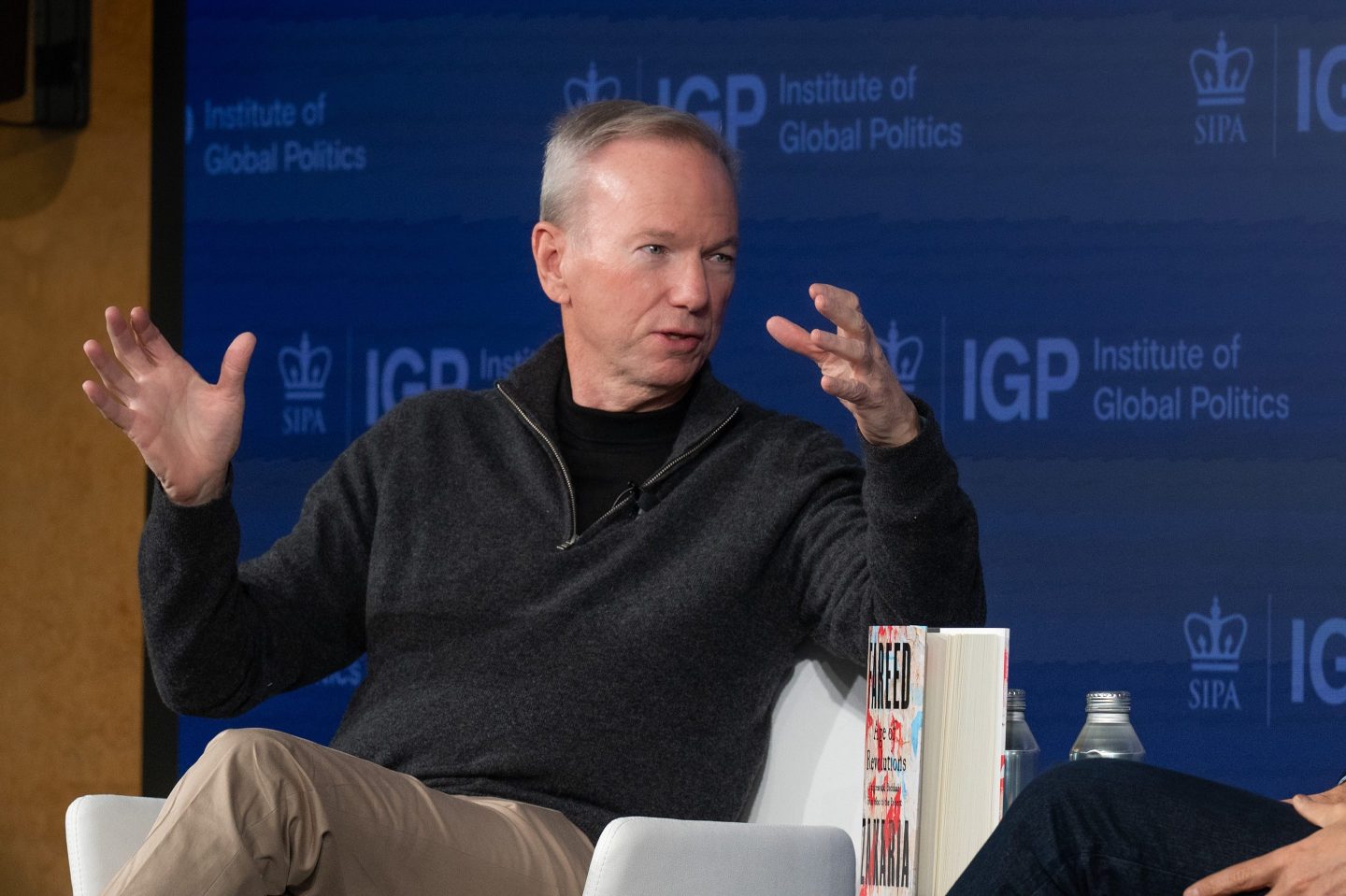The former CEO of Google is sounding the alarm about the tech sector’s ability to compete with China, and he warns that working from home isn’t helping.
Eric Schmidt, who was top boss at Google for a decade in the early 2000s, said during a conference interview published by the All-In podcast Wednesday that he doesn’t believe in remote work in part because it’s not helping U.S. tech companies compete with China’s cutthroat work culture.
“If you’re going to be in tech and you’re going to win, you’re going to have to make some tradeoffs,” Schmidt said. “Remember, we’re up against the Chinese; the Chinese work-life balance consists of 996, which is 9 a.m. to 9 p.m., six days a week.”
Schmidt added that working from home is especially harmful for young people who may be highly educated but have little or no experience in the workforce. Schmidt said he learned plenty in the early days of his career at Sun Microsystems (where he eventually became CTO) by just being present at the office and hearing his older coworkers argue in person.
“How do you re-create that in this new thing?” he asked about remote work.
A spokesperson for Schmidt declined to comment.
The new 996 obsession
China’s 996 work schedule was outlawed in 2021, but Schmidt insisted on the podcast that all the Chinese tech companies still do it. This kind of work obsession is making its way to Silicon Valley as well. An increasing number of startups, and especially AI startups, in the Bay Area now expect employees to put in 72-hour weeks, according to Wired.
For some young diehards, the gradual Silicon Valley shift from nap-pods to sleeping at the office is welcome news. Many twentysomethings, raised on the Zuckerberg-inspired hustle culture made famous in the film The Social Network, happily swear off work-life balance for startup success, the Wall Street Journal reported earlier this month. Fintech startup Ramp claimed a few days earlier that its proprietary data shows a spike in work on Saturdays, showing that “996 is real” because “San Francisco–based employees are increasingly working on Saturdays.” On the other hand, the change in corporate card transactions for restaurant, delivery, and takeout was a 0.4% increase, so that may not quite be statistically significant.
Schmidt has previously criticized his former company, Google, for its somewhat lax policies on remote work and productivity. In a talk at Stanford University last year, he said, “Google decided that work-life balance, and going home early, and working from home, was more important than winning.” Stanford later deleted the video, and Schmidt took his comments back.
“Eric misspoke about Google and their work hours and regrets his error,” a spokesperson for Schmidt said in a statement to Business Insider.
After implementing liberal work-from-home policies during the pandemic, Google has cut back on remote work and required some remote employees to come into the office three days a week. As the AI race heats up, Google’s own Sergey Brin told employees working on its AI model Gemini to work in the office “at least” every weekday, and added that 60 hours a week was “the sweet spot of productivity,” the New York Times reported.
Schmidt, during the interview published Wednesday, snuck a glance at White House AI and crypto czar David Sacks, as he joked work-life balance does have its place in at least one line of work.
“I’m in favor of work-life balance, and that’s why people work for the government,” he said.













